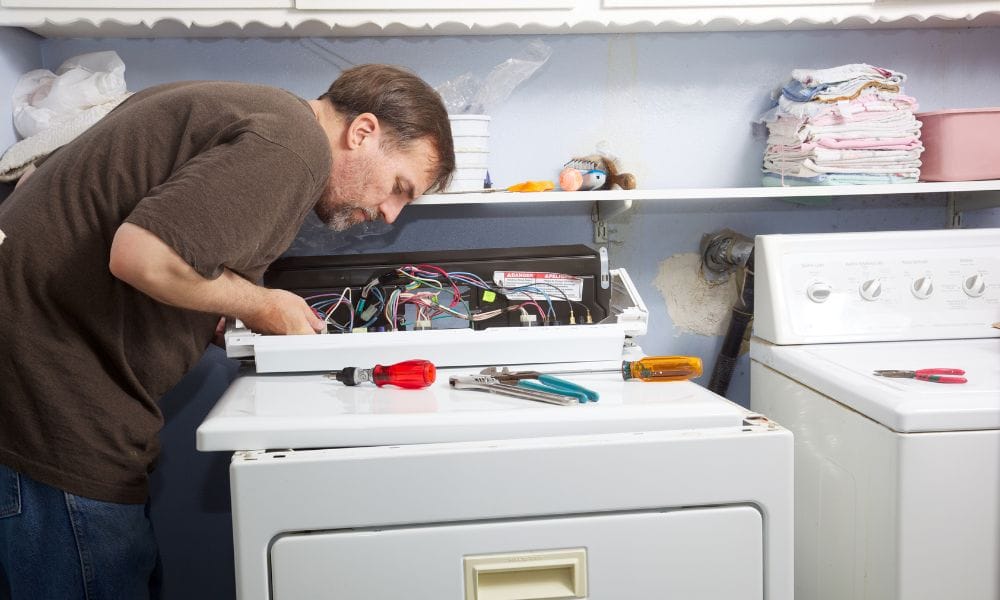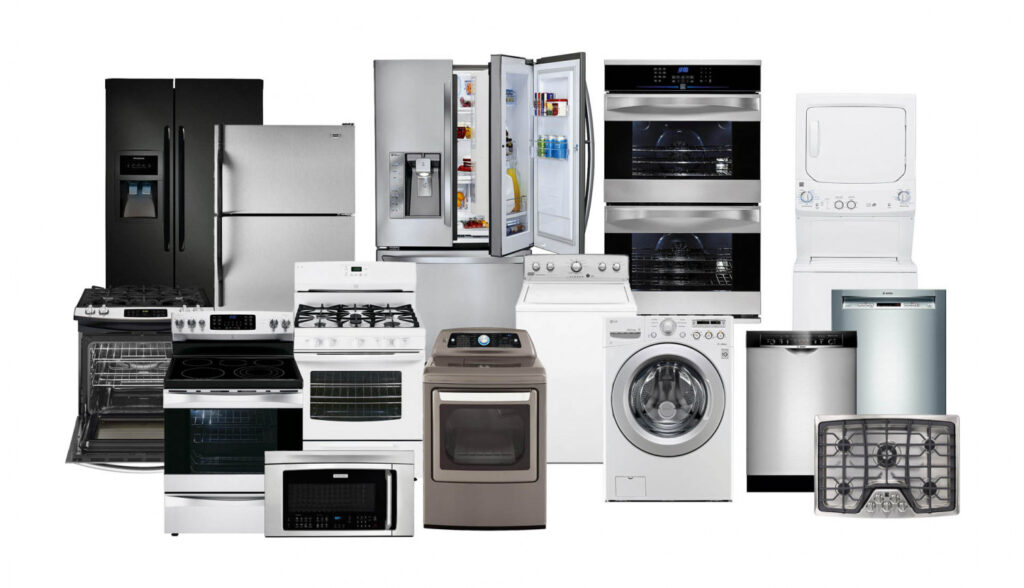
Master DIY Appliance Repair: Smart Fixes, Real Savings
When your household appliances malfunction, the initial thought process is: “Should I repair it myself or call a technician?” Repairing appliances by yourself can help save you money and provide a sense of achievement. On the other hand, it may cause additional damage, invalidate warranties, or even be unsafe to do if not done properly.
In this comprehensive guide, we’ll dive deep into the world of DIY appliance repair, highlight which fixes are safe to handle yourself, when to call a professional, and how to make smart repair decisions that protect your home and your wallet.
Why DIY Appliance Repair is Tempting
Cost Savings: Labor charges make up a big part of repair bills. DIY avoids that cost.
Con.venience: You don’t need to schedule an appointment for service.
Learning Opportunity: Lots of homeowners like learning about how appliances operate.
Satisfaction: Making a repair work on your own is. incredibly satisfying.
But the risks exist too. So how do you decide when it’s a good idea to try and when it’s time to back away?
When DIY Appliance Repair Makes Sense
1. The Fix is Simple and Low-Risk.
Changing a refrigerator light bulb or clearing a dishwasher filter are simple DIY tasks. Always refer to the user guide for troubleshooting procedures.
2. You Have the Right Tools
Common tools such as screwdrivers, multimeters, and socket sets are necessities. If the repair involves specialized equipment, it is perhaps best to use a technician.
3. Lots of Online Resources
YouTube videos and repair blogs can be very useful. But beware: not all instructions are correct or safe.
4. It Won’t Void the Warranty
If your appliance is still under warranty, opening it up will void it. Always read your policy before attempting it.
Common DIY Appliance Repairs You Can Try
Refrigerator
Replacing the water filter
Cleaning condenser coils
Repairing door gasket
Washing Machine
Cleaning the filter
Replacing a cracked belt
Repairing the door latch
Oven
Replacing oven light
Cleaning the heating element
Recalibrating the thermostat
Dishwasher
Cleaning the spray arm
Repairing a blocked drain
Replacing the dispenser for detergent
All of these activities can usually be done safely with a little patience and minimal tools.

Red Flags: When to Call a Professional
1. Electrical Issues
Scorched odors, sparks, or tripped breakers are indications to immediately stop and call a qualified technician.
2. Gas-Powered Appliances
Gas leaks or problems with your oven/stove gas can be very hazardous. Never undertake DIY fixes on gas appliances unless trained.
3. Refrigerant Handling
Repairing sealed systems or refrigerant leaks in refrigerators or AC equipment must be done under certification. Improper handling can lead to health risks.
4. Major Component Replacements
If the repair entails the motor, compressor, or control board, let professionals handle it.
Safety First: Tips Before Attempting DIY Repairs
Unplug the appliance prior to working on it
Wear protective gloves and goggles
Keep the working area dry and clean
Read step-by-step instructions carefully
Don’t guess; stop if in doubt
The Cost Factor: DIY vs. Professional Repair
| Appliance | DIY Cost Estimate | Pro Repair Cost |
|---|---|---|
| Dishwasher (minor fix) | $10 – $30 | $100 – $250 |
| Washing Machine (belt) | $20 – $50 | $150 – $300 |
| Fridge (coils clean) | $0 – $15 | $100 – $200 |
| Oven (thermostat) | $25 – $70 | $120 – $250 |
DIY fixes can obviously save money, but they might end up costing more in the long term if the repair does not hold or it damages something else.
What the Professionals Provide That DIY Does Not
Professional Diagnosis: They are able to identify underlying issues immediately.
Warranty on Work: Their work is covered by a service warranty.
Correct Tools & Spares: Professionals use OEM spares.
Safety Guarantee: They observe codes and safety protocols.
Hiring a technician can be the wiser choice if the problem is technical or involves safety.

How to Select the Proper Appliance Repair Service
If you plan on skipping DIY, select a professional service:
Read reviews and ratings online
Ask if they have experience with your appliance brand
Check licensing and insurance
Get quotes compared but don’t opt for the cheapest blindly
To ensure your DIY appliance repair meets safety standards, explore trusted tips from certified sources like your local utility provider or appliance manufacturer.
FAQs About DIY Appliance Repair
Q1: Will DIY appliance repair invalidate my warranty?
Yes, if it’s done incorrectly or not authorized. Always check the warranty policy.
Q2: Are there apps to assist with appliance repair?
Yes, there are apps such as “RepairClinic” that can assist you.
Q3: What is the most popular DIY appliance repair?
Clogged filters, dusty coils, and door gasket replacements are the top ones.
Q4: Should I purchase used parts for DIY repair?
It’s best to purchase new OEM parts for compatibility and safety.
Q5: How do I determine if it’s worth repairing an appliance?
If the cost of repair is greater than 50% of the value of the appliance, consider replacement.
Conclusion
DIY appliance repair can be empowering and cost-effective—when done right. The key is knowing your limits and recognizing when it’s time to step back. If the issue is minor and well-documented, give it a shot. But for more serious, hazardous, or technical problems, calling a professional isn’t just safer—it’s smarter.If your fridge isn’t cooling properly, check out our expert guide on common refrigerator issues in summer and see how smart DIY appliance repair can save the day.
Balance caution with confidence, and you’ll keep your home running smoothly without unnecessary stress or expense.



